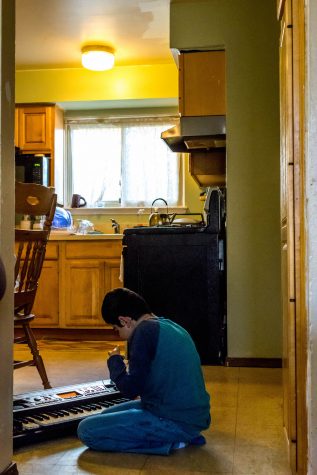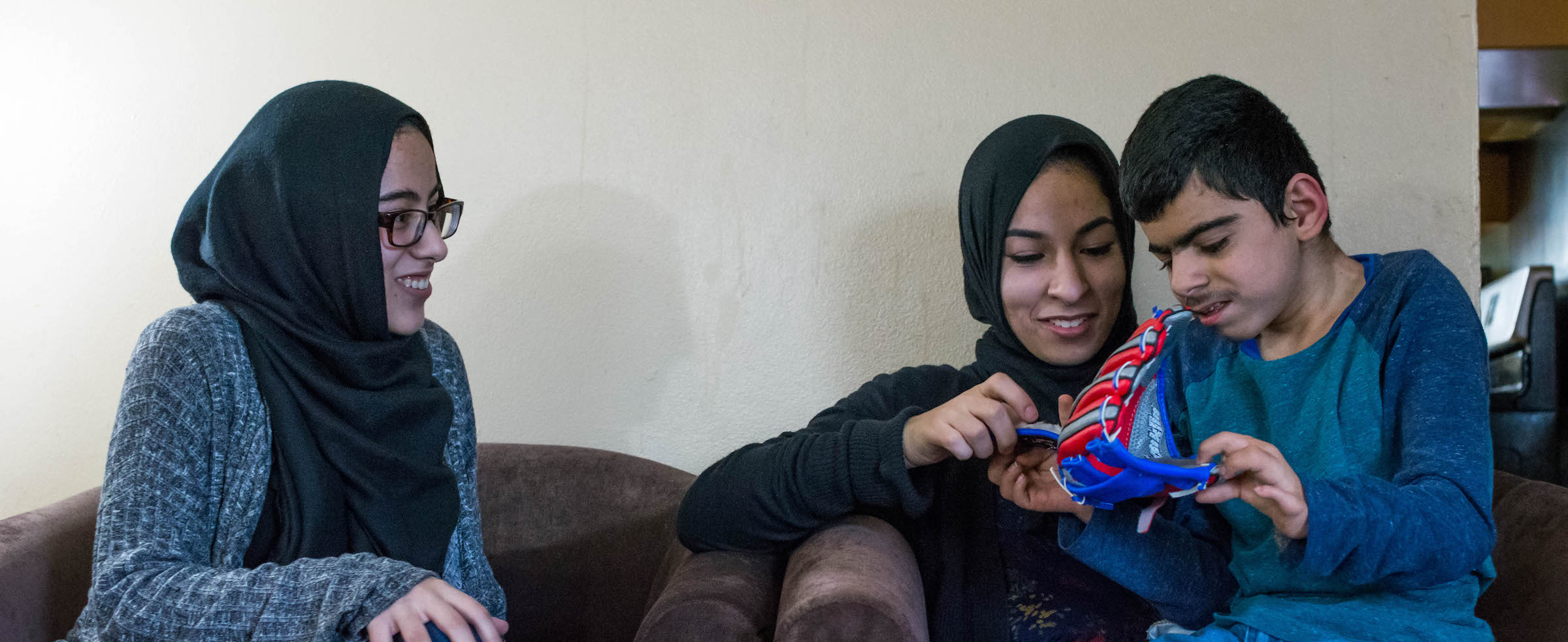Detained, but not Deported: A Family’s Final Chance to Remain Undivided
February 24, 2017
Yousef Ajin thought that this phone call was like all the others—the daily instances of harassment, phishing and threats he had been receiving for a few years now. Having brought the issue to the police multiple times in the past and receiving little assistance, he had developed his own tactics for dealing with the calls.
Yousef thought that this phone call was like all the others—so he responded as he would have to all the others. He cracked some jokes, poked a little fun and then eventually, yelled at the unidentified caller before hanging up. But Yousef, unaware of this at the time, was speaking to an immigration official.
So about a week later when Yousef, a Muslim, Kuwait-born Jordanian immigrant drove up to Detroit for his bi-weekly proof of residency, he thought it would be like all the others—a routine stop in which he would show his driver’s license, exchange a few words with an officer and then be on his way home to his wife and four children in Ann Arbor, all of whom are U.S. citizens. But this check-in was not like all the others—because from this one, Yousef Ajin didn’t come home.
Yousef’s check-ins are at 9:00 a.m. every other Monday, but it wasn’t until about noon on Jan. 30 that Ms. Omar, Yousef’s wife of 18 years, received a phone call.
“When the officer called me, he said ‘You don’t have to get him a lawyer or anything, he will be okay. They just want to teach him a lesson,” Ms. Omar said. She quickly discovered this wasn’t the case, as Yousef was transferred to the Calhoun County Jail nearly 80 miles from Ann Arbor, where he will stay until his deportation hearing on Tuesday, Feb. 28, at 1:00 p.m. in the McNamara Federal Building in Detroit.
Without Yousef around the house, who worked all night on the weekends and throughout most of the week in order to provide for the family, the Ajin family has had to make some major adjustments. “It’s hard, it’s so hard. I went back to work after 18 years because he was the only source of income,” Ms. Omar said. “On the weekends I have to work double shifts, like from nine to nine. It’s too much, but we have to make it.”
For their three daughters, Yara, Betoul and Mariam, this change means they are now the primary caretakers for Betoul’s 15-year-old twin brother Bader, who suffers from severe developmental disabilities.
“Since I was born my mom has never worked,” said Betoul, a sophomore at Community High School. “So it’s new. It’s really, really new.”
Shortly after Ms. Omar received the call from immigration on Jan. 30, Betoul noticed something was wrong when her father wouldn’t answer a call. “He gets mad when people don’t pick up the phone, so he always picks up his.”

A cousin picked Betoul up from school where she was working on tech for Community Ensemble Theatre’s production of “Fiddler on the Roof.” She hesitantly informed Betoul of her father’s situation. “She told me ‘you can cry, you can cry,’” Betoul said. “I didn’t want to, but I ended up crying anyway.”
The family has only seen Yousef once since he was detained, at his bond hearing and through a screen. “I looked at my dad sitting, and I couldn’t do anything about it, in an orange jumpsuit,” Betoul said. “It was the worst feeling.”
The daily calls, however, have been a strong connection between Yousef and his kids, as he tries to stay updated on their lives at home and in school. He keeps the conversation light-hearted, according to his oldest daughter Yara, a junior at Pioneer High School. “Every Friday he used to take us to the gas station after school, so last Friday he asked us ‘What do you guys want from the gas station?’”
The kids are aware that, in many ways, the cheer is a facade. “He’s mad. Every time he calls us he tries to be happy, but I know he’s mad,” Betoul said. “He has right to be. We all do.”
Despite the closeness of the family, Yousef won’t allow his kids to come and visit. “He doesn’t want us to see him like that. He wants to be strong, he wants to be the dad of the house,” Betoul said. “Seeing him like that, that’s at his weakest point.“
The intricacies of immigration law are complex and confusing; the way that they are enforced—even more so. But the importance of preserving the presence of a father for these four children, a financial provider for a family of six and a loved one to so many in this community is straightforward. It is human.
The family knows if there was ever an opportunity to keep Yousef at home, that moment is Tuesday, 1 p.m. at the McNamara Federal Building in Detroit. When the stakes are at their highest, Ms. Omar hopes the community will provide the much needed support to match.
“A big community around here is going to go [to the hearing]. It means a lot to us. They have been very supportive and I’m thankful to everybody,” Ms. Omar said. “Because Tuesday will decide our future.”
If you would like to support the Ajin family, Yousef’s hearing will be at the Patrick V. McNamara Federal Building, 477 Michigan Avenue, Detroit, MI, 48226, at 1:00 p.m. on Tuesday, Feb. 28. This is not a protest, but rather an expression of support towards the Ajin family. If you are able to drive other people, or need a ride in order to attend, please fill out this google form.

